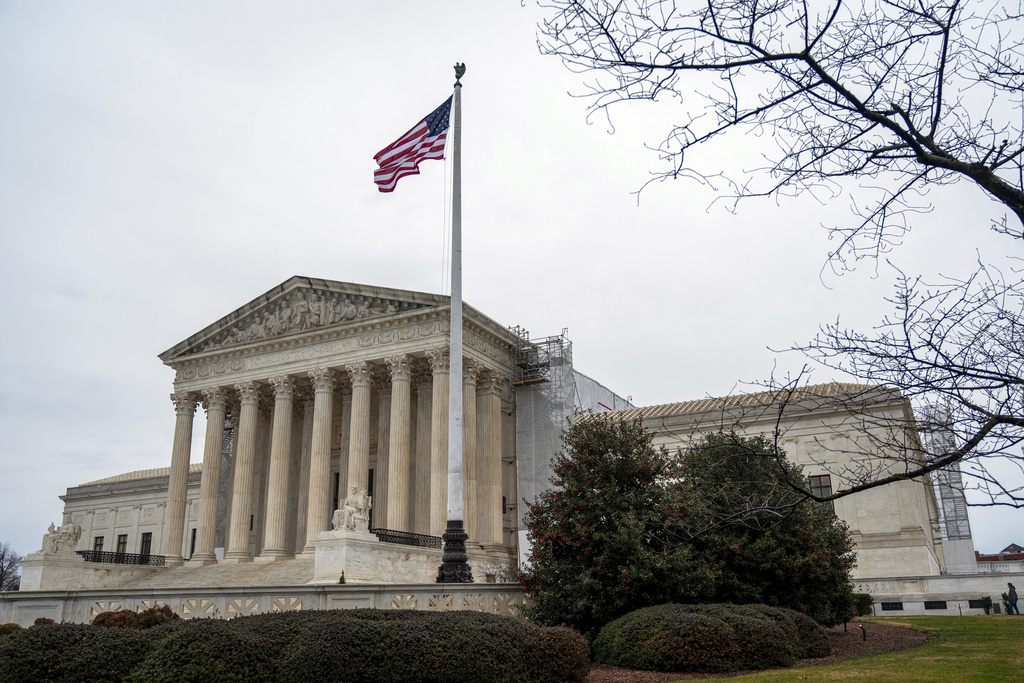The Supreme Court will hear from the National Rifle Association on Monday in a lawsuit against a former New York state official who the NRA says pressured banks and insurance companies to blacklist the group after the deadly school shooting in Parkland, Florida.
The NRA says former New York State Department of Financial Services superintendent Maria Vullo used her regulatory power to economically punish the group for its gun-rights stance in violation of the First Amendment.
Vullo says she did share guidance about potential “reputational risks” of working with gun groups, but didn’t exert pressure on companies. Many businesses decided on their own to distance themselves from the group after the 2018 school shooting that left 17 people dead, her attorneys say in court documents.
The gun-rights group is being represented by a frequent political nemesis: The American Civil Liberties Union. The civil liberties group has said it opposes the NRA’s views but that the case could be a “playbook” for government officials to target other groups, including those on the other end of the ideological spectrum supporting abortion rights or environmental protections.
The justices are also hearing another case about the government and free speech Monday, considering how far the federal government can go to combat controversial social media posts on topics including COVID-19 and election security.
In the NRA case, the group claims Vullo leveraged a state investigation into the legality of NRA-endorsed insurance products to pressure insurance companies, saying she would go easier on them if they cut ties with the NRA.
The NRA had been working with insurance companies to offer its members policies that covered losses caused by firearms, even when the insured person intentionally killed or hurt somebody.
Vullo’s attorneys say the products clearly violated state law, including by covering intentional acts and criminal defense costs, and the pressure claims are “implausible and insufficient.” The probe started before Parkland and the insurance providers ultimately paid multimillion-dollar fines.
She also sent out guidance letters to banks and insurance companies warning about the “reputational risks” of working with the NRA. After that, several companies, including the one that insured the NRA, cut ties with the group, it said.
Vullo says the letters were evenhanded and part of her job, not threatening. A federal appeals court in New York sided with her rejecting the NRA’s claims and finding she had qualified immunity as a government official.
The NRA appealed that ruling to the Supreme Court. The group argues she had significant sway over New York companies as a regulator, giving the letters an implied threat.
The Justice Department also weighed in on the case. Staking out a middle ground, the solicitor general said the NRA’s claims about leveraging the investigation were plausible enough that the suit shouldn’t have been tossed out by a lower court, but an overly broad ruling about the guidance letters could wrongly restrict officials’ free speech.
(AP)












One Response
If the Supreme Court wants to ban “Lawfare” (use of the legal system to attack political enemies) as being in violation of the First Amendment (via the 14th amendment), this would be a good case to do so (and potentially combined with some of the cases against Donald Trump).